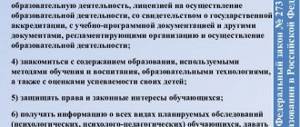How to prove the fact of cohabitation
- registration at one place of residence;
- maintaining a joint household, which includes paying for utilities (receipts), purchasing joint property (receipts and bills), carrying out repairs on a given living space (also receipts, checks, etc.).
- testimony of neighbors, acquaintances and friends;
- the presence of letters and other written evidence that speaks of cohabitation;
- availability of other documents confirming cohabitation, in particular photo and film documents.
How to determine jointly acquired property
Expert opinion
Nina Matveeva, real estate consultant
The right to own the property goes to the person in whose name the property was originally registered. You can't rely on simple promises. It is better to register shared ownership immediately so that everyone has their own part. Then, when breaking up, it will be easier to confirm your rights. They will be documented.
Everything that the partners had before living together remains with them. The other half will not be able to claim this. During the trial, the judge uses the rules of civil law.
The following documents will help the parties:
· purchase and sale agreement, where the buyer and the cost of the object are indicated;
· deed of gift between spouses, cohabitants (although if the property was transferred to one spouse, the second will not receive anything);
· agreement of shared ownership (the number and size of shares are indicated there), for example, a deed of gift for a share in an apartment
· receipts (for example, real estate is registered in the name of one person, but he writes a receipt confirming that he took the amount of money from the second spouse to purchase the property);
· receipts, payment checks – evidence of a citizen’s financial investments.
Sometimes spouses register the purchased property for their joint children. Then the disputes concern guardianship, with whom the minor owner will live.
How to prove the cohabitation of spouses
The fact of living together can be proven by testimony, but the fact of joint budget management is almost impossible. Registered: 02/16/2005 Messages: 1315 From: Moscow Added: 10:15, Thu Jun 08, 2006 Message title: This will give you absolutely nothing, because your current wife has exactly the same rights as you to alimony, regardless of where they live whether they are together or not and whether they have the same budget or not, now the court will set a new amount of alimony based on two children, and accordingly your alimony will decrease.
Evidence of cohabitation
It is typical that when running a common household, the costs and labor of both or one of the persons living together are aimed at satisfying common family household needs (cooking, washing, cleaning, purchasing food and household items). Thus, we are talking about the existence of a stable de facto family relationship between the child’s mother and the defendant. The law does not require that their cohabitation and management of a common household continue until the birth of the child, and the duration of such relationships is not established by law.
Evidence of cohabitation
According to the population census of the year, there are approximately 4.4 million unregistered families in Russia. People live with each other for years, acquire common property, give birth to children, but for some personal reasons they do not sign their names, which means they are not a family from the point of view of the law. That is, although they have all the signs, rights and responsibilities of a family, they cannot fully protect their family rights.
We recommend reading: Amount of Disability Pension for a Disabled Child in 2021 in Tyumen
Evidence establishing the fact of cohabitation
Advice from judicial practice
- If establishing the fact of residence is necessary to determine the place of opening of the inheritance, it is enough to apply for a court decision by application. In this case, the state duty will be 200 rubles for each claim.
- If the right to privatize an apartment or recognize ownership rights depends on information about your place of residence, it is better to submit a statement of claim to the court and pay the fee at the rate specified in Art. 333 Tax Code.
- Temporary residence will not determine the place of opening of the inheritance.
- When establishing paternity, in addition to evidence of cohabitation, one or a series of examinations must be done.
- To recalculate compensation for housing and utilities, you don’t have to go to court at all if you take a certificate from the State Housing Administration or draw up an act with the participation of neighbors and a representative of the service organization.
- A certificate from a local police officer, from a clinic, or from social security authorities can serve as good evidence in cases of establishing such facts.
On the nuances of establishing the fact of residence by one family
The plaintiff's possession of documents related to death and burial does not confirm the facts of her being in a de facto marital relationship, living together, running a common household, or having mutual rights and obligations with the deceased
On November 25, 2021, the Supreme Court, composed of a panel of judges of the Second Judicial Chamber of the Civil Court of Cassation, examined in a court session in written proceedings the cassation appeal of citizen M., filed by her representative, lawyer Ch., against the decision of the Court of Appeal of the Dnipropetrovsk Region dated August 28, 2021 year, established the following.
- Descriptive part
Summary of claims
In August 2021, Ms. M. filed a lawsuit against the territorial community represented by the Industrial District Council in the city of Dnieper to establish the fact of residence by one family.
In support of the stated claims, the plaintiff indicated that * the year Mr. P. died, after whose death the inheritance was opened. The plaintiff noted that since 2005 she had been constantly living with Mr. P. as one family as a man and a woman without registering a marriage. She and Mr. P. had a common life, budget, mutual rights and obligations of spouses. After the death of the testator, she personally took upon herself the expenses for the burial of Mr. P., therefore she received all the documents related to the death and burial. Within the period provided for in Article 1270 of the Civil Code (Civil Code) of Ukraine, she applied to the state notary of the Fourth Dnepropetrovsk State Notary Office with an application to accept the inheritance. However, on July 2, 2021, she was denied a certificate of inheritance due to the lack of documents confirming family relations with the deceased. The plaintiff asked the court to establish the fact that she lived with Mr. P., who died in the year *, as one family without registering a marriage from 2005 to the year *.
Summary of the decision of the court of first instance
By the decision of the Industrial District Court of Dnepropetrovsk dated November 29, 2021, the statement of claim of citizen M. against the territorial community represented by the Industrial District Council in the city of Dnepr, the Dnieper City Council, a third party who does not declare independent claims on the subject of the dispute - citizen R ., the establishment of the fact of residence by one family was partially satisfied. It has been established that Ms. M. lived with Mr. P., who died in * the year, as one family without registering a marriage from January 2008 to * the year.
The decision of the court of first instance was motivated by the plaintiff’s proof of the fact that she and Mr. P. lived together as one family without registering their marriage from January 2008 to *.
Summary of the court decision of the appellate court
By the decision of the Court of Appeal of the Dnepropetrovsk Region dated August 28, 2021, the appeal of Mr. R. was satisfied, the decision of the Industrial District Court of Dnepropetrovsk dated November 29, 2021 was canceled, and the claims of Mr. M. were denied.
The court decision of the appellate court is motivated by the fact that the plaintiff did not prove with appropriate and admissible evidence that she lived as one family without registering her marriage with the deceased Mr. P.
Arguments of the participants in the case
Generalized arguments of the cassation appeal
Ms. M. filed a cassation appeal with the Supreme Court against the decision of the Court of Appeal of the Dnepropetrovsk Region dated August 28, 2021, in which, citing the incorrect application of substantive law by the courts and violation of procedural law, she asks to cancel the said decision of the Court of Appeal and leave it in force decision of the court of first instance.
The cassation appeal is motivated by the fact that the appellate court incorrectly determined the subject of proof and incorrectly assessed the evidence, and also incompletely and comprehensively clarified the circumstances relevant to the case, based on the fact that the evidence available in the case materials in their totality confirms the fact of her residence one family with the deceased Mr. P., in particular, the testimony of witnesses, the presence of evidence in support of her actions to bury Mr. P.
Generalized arguments for the response to the cassation appeal
The Supreme Court received a response from Mr. R. to the above-mentioned cassation appeal, in which the applicant asks the cassation appeal to be dismissed and the appealed court decision to be left unchanged. He points out that the appellate court, assessing the relevance, admissibility, and reliability of the evidence available in the case, correctly recognized the arguments of Ms. M. as unreliable and rejected them, since the inconsistency of the explanations of both the witnesses and Ms. M. herself raises doubts about their reliability.
The Supreme Court received a response from the Dnieper City Council to the above-mentioned cassation appeal, in which the applicant asks the cassation appeal to be left unsatisfied and the appealed court decision to remain unchanged. Indicates that the facts cited by the applicant in support of the arguments of the application are not supported by adequate evidence.
Receipt of a cassation appeal to the cassation court
According to Article 388 of the Civil Procedure Code (CCP) of Ukraine, the court of cassation in civil cases is the Supreme Court.
By the decision of the Supreme Court dated October 4, 2021, cassation proceedings were opened in this case and the case was requested from the Industrial District Court of Dnepropetrovsk.
This case came to the Supreme Court.
Factual circumstances of the case established by the court
The court found that Mr. P. died in * the year, which is confirmed by a copy of death certificate No. **, issued on January 11, 2021 by the Industrial Department of State Registration of Acts of Civil Status of the Dnepropetrovsk City Department of Justice.
After the death of Mr. P., an inheritance opened in the form of an apartment at the address: ***.
- Motivational part
Position of the Supreme Court
In accordance with the provisions of Part 2 of Article 389 of the Code of Civil Procedure of Ukraine, the grounds for cassation appeal are the incorrect application by the court of substantive law or violation of procedural law.
The cassation appeal cannot be satisfied.
The motives that guided the Supreme Court and the rules of law applied
According to Part 3 of Article 3 of the Code of Civil Procedure of Ukraine, civil proceedings are carried out in accordance with the laws in force during the commission of individual procedural actions, consideration and resolution of the case.
In accordance with the requirements of parts 1 and 2 of Article 400 of the Civil Procedure Code of Ukraine, when considering a case in cassation, the court checks, within the cassation appeal, the correct application by the court of the first or appellate instance of the rules of substantive or procedural law and cannot establish and/or consider as proven circumstances that are not were established in the decision or rejected by it, resolve the issue of the reliability or unreliability of this or that evidence, the superiority of some evidence over others. The cassation court verifies the legality of court decisions within the limits of the claims filed in the court of first instance.
According to Part 2 of Article 3 of the Family Code of Ukraine, a family consists of persons who live together, are connected by a common life, and have mutual rights and obligations.
Proper and acceptable evidence of a man and a woman living as one family without registering a marriage is, in particular, evidence of cohabitation, running a common household, the parties having a common budget, making joint expenses, acquiring property in the interests of the family, and the existence of mutual marital rights and obligations between the parties , other evidence indicating the existence of a relationship established between the parties that is inherent to both spouses.
When filing this claim in court, in confirmation of the fact of residence of citizen M. and citizen P. in the period from 2005 to *, the plaintiff provided documents related to the death and burial of citizen P.
It was established that the plaintiff’s possession of documents related to the death and burial of Mr. P. cannot be taken into account, since their very presence does not confirm the fact that the plaintiff is in a de facto marital relationship, living together, running a common household and the existence of mutual rights and responsibilities with the deceased.
Based on properly assessed evidence presented by the parties, the court of appeal, having assessed the evidence, taking into account the stated rules of substantive law, came to the correct conclusion that the plaintiff’s demands to establish the fact of living as one family without registering a marriage in the period from 2005 to * year cannot be satisfied , and reasonably refused to satisfy the requirements.
The arguments of the cassation appeal of Ms. M. regarding the failure of the appellate court to provide an assessment of the testimony of witnesses are refuted by the case materials. Explanations of the witnesses present and questioned during the trial are contained in the case materials and taken into account in the court decision of the appellate court.
Also, the arguments of the cassation appeal about the violation by the appellate court of Article 352 of the Code of Civil Procedure of Ukraine when considering the appeal of Mr. R., taking into account the following, do not deserve attention.
By the ruling of the Industrial District Court of Dnepropetrovsk dated September 2, 2021, at the request of the plaintiff, Mr. R., as a third party who does not declare independent claims on the subject of the dispute, was involved in the case.
In accordance with Article 352 of the Code of Civil Procedure of Ukraine, participants in the case, as well as persons who did not participate in the case, if the court has decided the issue of their rights, freedoms, interests and (or) obligations, have the right to appeal the decision of the first instance court in whole or in part on appeal.
Other arguments set out in the cassation appeal boil down to disagreement with the conclusions of the appellate court regarding the establishment of the circumstances of the case, to a re-evaluation of the evidence, which, due to the requirements of Article 400 of the Code of Civil Procedure of Ukraine, goes beyond the scope of consideration of the case by the cassation court. The arguments indicated in the cassation appeal were the subject of research in the court of appeal with the provision of an appropriate legal assessment of all the factual circumstances of the case, which is based on the requirements of the current legislation and with which the cassation court agrees.
Since the appealed decision was left unchanged and the complaint was not satisfied, the court fee for filing a cassation appeal is borne by the person who filed the cassation appeal.
Guided by Articles 400, 401, 409, 416 of the Code of Civil Procedure of Ukraine, the Supreme Court, composed of a panel of judges of the Second Judicial Chamber of the Civil Court of Cassation, ruled:
- the cassation appeal of Ms. M., filed by the representative - lawyer Ch., shall be left unsatisfied;
— the decision of the Court of Appeal of the Dnipropetrovsk region dated August 28, 2021 remains unchanged.
The decision of the cassation court is final and cannot be appealed.
(Resolution of the Supreme Court of November 25, 2021. Case No. 202/5003/16-ts. Judge-reporter - Chervinskaya M.E. Judges - Burlakov S.Yu., Korotun V.M.)
Share
Lawyer Semensky Alexander Anatolyevich - STATEMENT ON ESTABLISHING THE FACT OF CO-RESIDENCE
In addition, if a woman and a man lived for a long time (what time is considered long - in the event of a dispute, only the court can decide) lived as one family without registering a marriage, the one of them who became disabled during their cohabitation has the right to be supported by the second spouse even after termination of such residence. In this case, the same rules apply as for spouses who have divorced an officially registered marriage (including the possibility of demanding alimony payments). Also, one of the common-law spouses (regardless of gender) with whom their common child lives has the right to be supported by the other common-law spouse under the same conditions as established by law for official spouses.
Division of property in a civil marriage
It’s worth figuring out in advance how this will happen. When a couple breaks up, the division of everything they have acquired together inexorably follows. Especially real estate. Legal spouses are considered co-owners; upon divorce, their property is divided in half (Article 34 of the RF IC) .
The division of property carried out upon the breakdown of a civil marriage (cohabitation) is regulated not by the family code, but by the civil code. According to which the property of persons will be considered as shared or joint.
Looking at how citizens participated in real estate acquisition transactions. Spouses will have to prove the extent of their participation and contributions they made to own the property. If the parties' disputes continue, the court may use the common ownership regime, i.e. divide objects equally.









